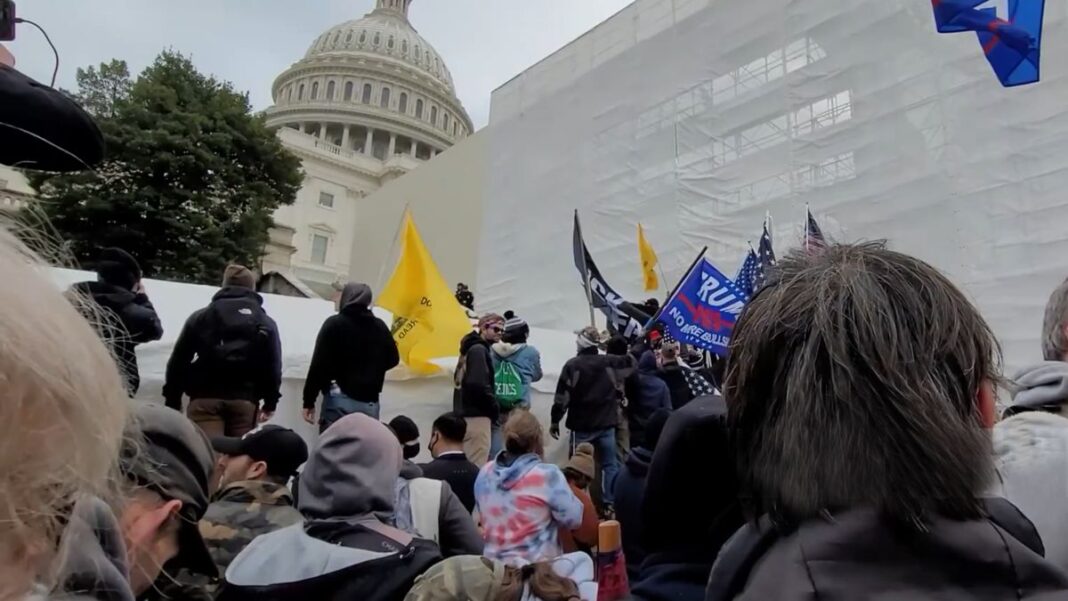Three-judge panel rules out ‘split sentence’ for petty Capitol offense
A federal appeals court on Aug. 18 struck down the use of so-called “split sentences” in Jan. 6 cases—imposing both prison and probation for petty-offense misdemeanors such as the often-used charge of “parading, demonstrating, or picketing in a Capitol building.”
The 2–1 ruling (pdf) by a three-judge panel of the U.S. Court of Appeals for the District of Columbia Circuit could affect a large number of Jan. 6 cases where the U.S. Department of Justice recommended—and district judges imposed—sentences with jail and probation for “parading” convictions.
The appeal involved the conviction of James Leslie Little, 52, of Claremont, North Carolina, on a single count of parading, demonstrating, or picketing in a Capitol building.
In March 2022, U.S. District Judge Royce Lamberth sentenced Mr. Little to 60 days in jail, followed by three years of probation.
Mr. Little told the FBI he didn’t have any intention to go into the Capitol “but that he got caught up in the moment.”
The statement of facts in the case said Mr. Little walked around the Capitol, “smiling and fist-bumping other people,” and eventually went into the Senate Chamber and took photos of himself.
He sent a text to the person who later reported him to the FBI that read, “We just took over the Capital (sic).”
The recipient wrote back and accused him of treason. “If you don’t condemn this, never bother speaking to me again!”
The Court of Appeals said the split sentence is not allowed.
“The only question on appeal is whether that sentence is authorized by statute. It is not,” wrote Circuit Judge Justin R. Walker for the appeals court majority. “Probation and imprisonment are alternative sentences that cannot generally be combined. So the district court could not impose both for Little’s petty offense.”
Judge Walker—appointed to the bench by President Donald Trump—was joined by Senior Circuit Judge Judith Rogers—an appointee of President Bill Clinton—in the majority opinion. Dissenting was Circuit Judge Robert Wilkins, who was appointed by President Barack Obama.
The Court of Appeals vacated Mr. Little’s sentence and remanded the case back to U.S. District Court for resentencing.















































